Expert Answers 6 Top Starting Solids Questions for Mums.
Starting solids? Dr Julie Bhosale, internationally renowned family nutrition and wellbeing expert answers some of these big questions!
5 min read
 Baby – Expert Article by
Baby – Expert Article by

Q1. What are the signs that my baby is ready for solids?
Believe it or not this is really tricky one for parents! There are both physical and emotional signs that your baby is ready to start trying solid food. While a lot of babies will start putting things in their mouth early (some will even at three months of age) this alone is not necessarily them telling you they are ready to start.
Physical signs to also watch for include being able to sit without support, able to hold their head up and no tongue extrusion reflex. Emotional signs of readiness are very rarely discussed.
Remember that learning to eat is a challenge and it is important to take into account other changes that your baby may be experiencing at the same time for example starting daycare or waking a lot a night, as this will affect their readiness to try solid food.
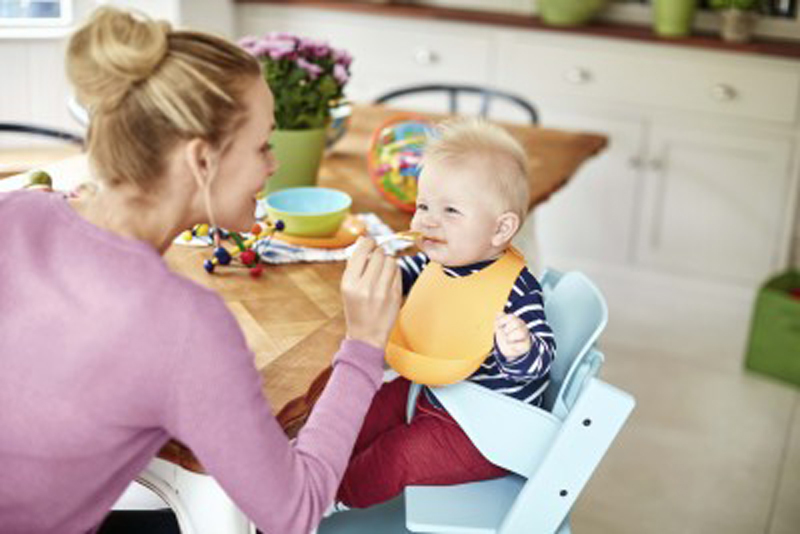
Q2. What is the best food to start my baby on?
Current World Health Organisation Guidelines are to exclusively breastfeed your baby until six months of age. This is something I do endorse and will mean your baby is more developmentally ready to start solids. So in regards to a four-month old I recommend waiting a bit longer and then when about six months of age starting on vegetables – they are the most nutrient dense foods available and are nice and easy on a babies gut.
I strongly advice against starting babies off on baby rice. It is a very processed product, low in nutrients and a babies’ gut actually does not produce the key enzyme to digest grains until about 10-12 months of age.
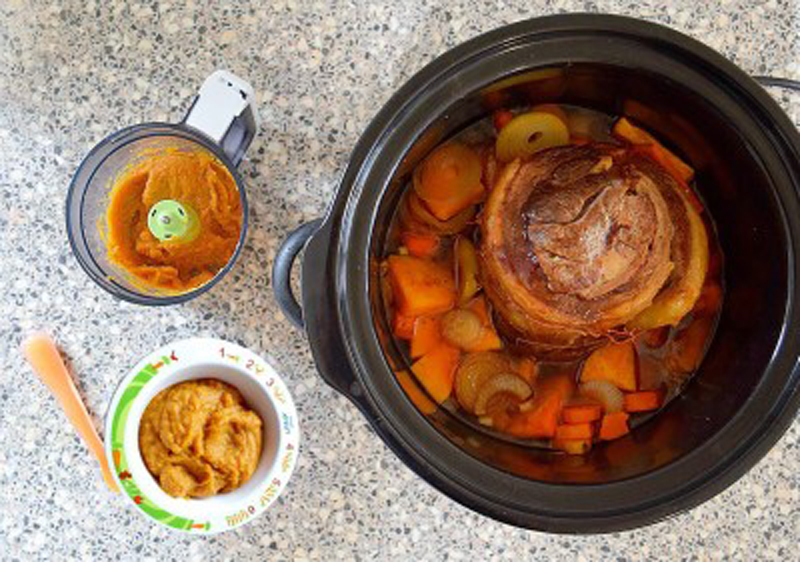
Q3. Why is meat important to introduce from around 6 months?
One of the primary reasons for introducing solid food is to provide iron to your baby. Breastmilk and formula contain very low levels of iron (only trace amounts). However, babies are born with enough iron supplies to last until six months of age.
After this, they need to boost their iron intake through solid food. Introducing meat or a plant source that is high in iron for vegetarians is very important to do early on. Adding meat to a puree is very easy and babies will also like to suck on firm pieces of meat.
Q4. When is the best time of the day to introduce solids?
Creating a positive atmosphere around eating is crucial. Babies will pick up on your stress and mood. This is why I recommend the ideal time in the day to start solids is the time that is best for your family unit.
For many, first thing in the morning and dinner time will be a pressure point so it is perfectly fine to start in the middle of the day. After waking from their first morning sleep you may find more relaxed and give you a little bit of preparation time while they are sleeping.
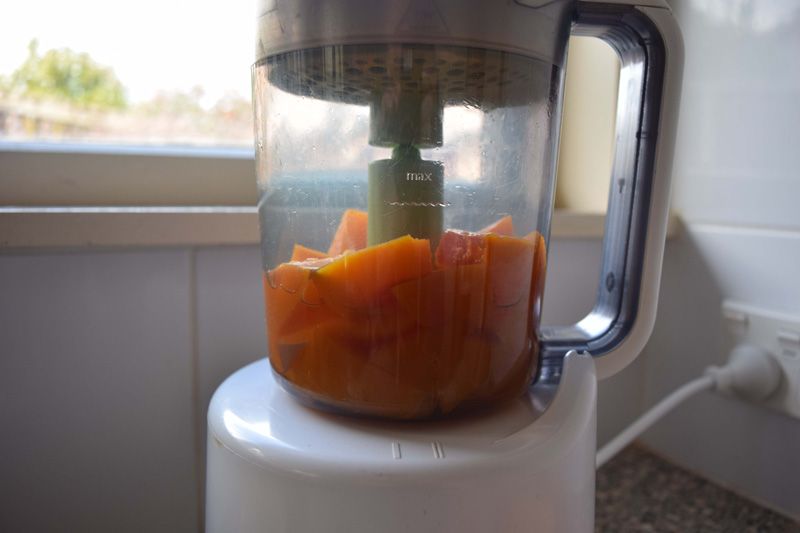
Q5. What is the ‘Baby Led Weaning’ approach – pros and cautions?
Baby led weaning (BLW) has become very popular in recent years, however it is something that has existed for generation just in a slightly different form. By definition, BLW means strictly feeding your baby finger foods only and allowing them to choose what they are eating (baby-led). BLW does really encourage babies to use a lot of their senses, especially touch which is very important for babies learning to eat.
It can also promote trying a lot of difference foods and eating from the family plate. However, it is important to also consider for young babies (6-8 months) foods high in iron are more difficult to eat in a ‘strict finger food only’ for example green leafy vegetables, meat and nuts. It is also crucial for parents to know the difference between gagging and chocking as the risk for chocking is higher when eating more whole versions of food.
Q6. Allergies - when to introduce your baby to certain foods and what’s the latest research?
Guidelines on introducing allergenic foods has drastically changed and this has only happened in the last year. We have seen an exponential rise in the presence of allergy in infants and children.
Now one in every 10 children will be diagnosed with allergy. A lot of new research has come up to show that introducing allergenic foods can reduce the prevalence of this.
I discuss introducing allergic foods in detail in my upcoming book however, the advice now (as of 2016) is to start these foods, especially fish, peanuts and egg early. If there is a family history of allergy always consultant with a specialist first.
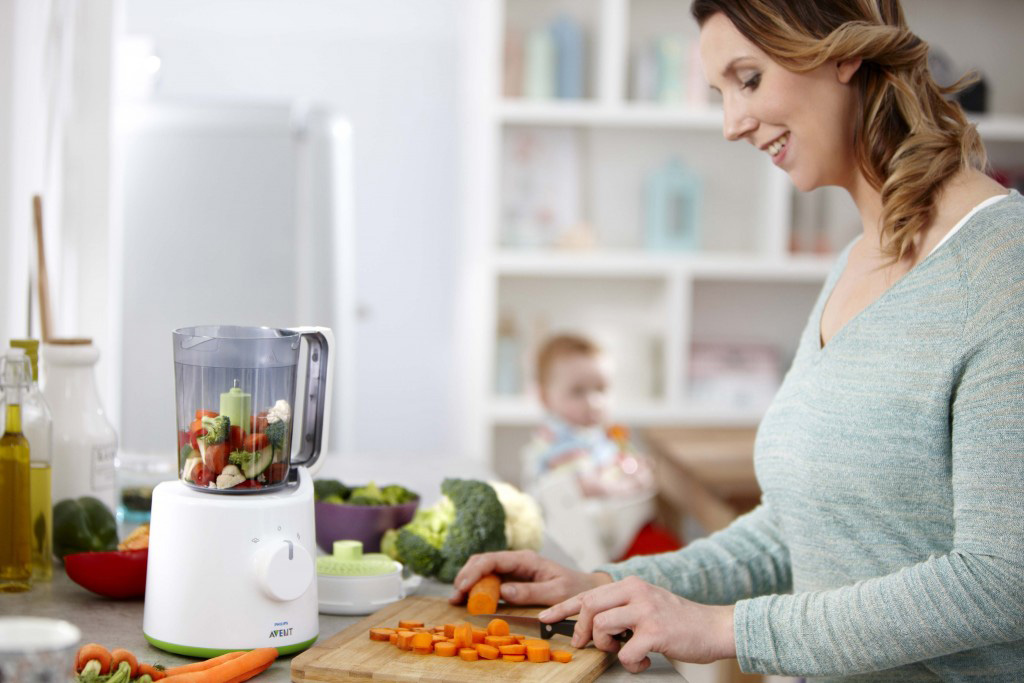
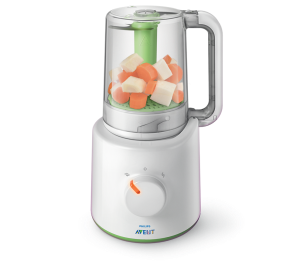
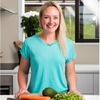 Dr Julie Bhosale is an internationally-renowned family wellbeing and nutrition expert, author and speaker who is changing the conversation around family wellbeing and the realities of a woman’s “life after birth”.
Dr Julie Bhosale is an internationally-renowned family wellbeing and nutrition expert, author and speaker who is changing the conversation around family wellbeing and the realities of a woman’s “life after birth”.